News
Debt crisis: Nigeria is broke, Finance minister laments
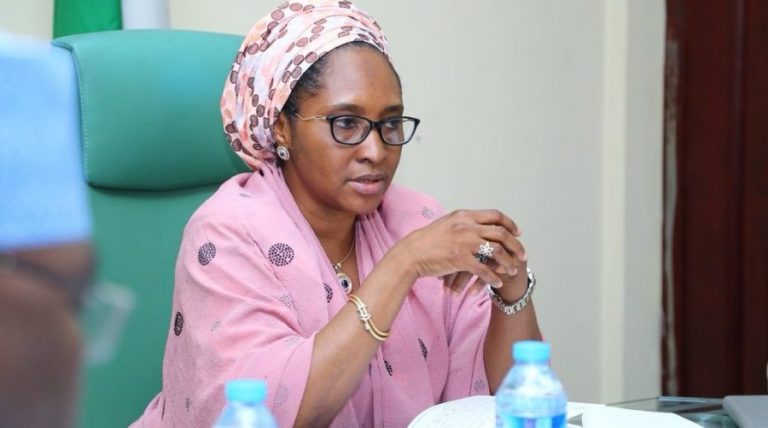
As Nigeria’s public debt climbs to N41.6trn
Nigeria’s fiscal position worsened in the first four months of the year as the cost of repaying debt surpassed the government’s revenue in the first quarter of 2022.
According to details of the 2022 fiscal performance report for January through April, Nigeria’s total revenue stood at N1.63 trillion while debt servicing stood at N1.94 trillion, showing a variance of over N300 billion.
Nigeria’s Minister of Finance, Budget and National Planning, Zainab Ahmed, on Thursday warned that urgent action is needed to address the nation’s revenue challenge and expenditure efficiency at both the national and sub-national levels.
The report showed that gross oil and gas federation revenue for the first four months of the year was projected at N3.12 trillion but as at April 30, only N1.23 trillion was realised, representing a mere 39% performance.
Despite higher oil prices, the report showed that oil revenue underperformed due to significant oil production shortfalls such as shut-ins resulting from pipeline vandalism and crude oil theft as well as high petrol subsidy cost due to higher landing costs of imported products.
However, non-oil taxes trailed targets marginally, with average performance of 92.6%.
“Revenue performance is expected to improve in the second half of 2022 as a result of concerted efforts to address the oil theft and pipeline vandalism, the report said. It added that there is also seasonality to some of the non-oil taxes, which means that the nation expects to collect significantly more in the second half of the year.
“The improved revenue collection should also moderate the Debt Service to Revenue ratio, which is currently above our target level,” the report said.
The expectation of improved revenue collection should also moderate the debt service to revenue ratio, which is currently above the nation’s target level.
In the first quarter of 2020, Nigeria’s debt service as a percentage of revenue rose to 99%, according to the Medium-Term Expenditure Framework and Fiscal Strategy (MTEF/FSP) report released by the Federal Ministry of Finance, Budget, and National Planning.
The data showed that in Q1 2020, Nigeria incurred a total sum of N943.12 billion in debt service while the Nigerian government retained revenue at N950.56 billion. In effect, Nigeria’s debt service to revenue was estimated to be 99% during the period.
On Thursday, the new report showed that the Nigerian government’s share of oil revenues in Q1 2022 was N285.38 billion (representing 39 percent performance), while non-oil tax revenues totalled N632.56 billion, representing 84 percent. In essence, the government generated N401.8 billion from company income tax (CIT) and value-added tax (VAT) as CIT and VAT collections were N298.83 billion and N102.97 billion, respectively, representing 99 percent and 98 percent of their respective targets.
Customs collections (made up of import duties, excise and fees, as well as federation account special levies) trailed target by N76.77 billion (25.42 percent) while the other revenues amounted to N664.64 billion, of which independent revenue was N394.09 billion.
The report noted that for Nigeria, “fiscal risks are somewhat elevated”, following weaker-than-expected domestic economic performance and structural issues in the domestic economy. It warned that revenue generation remains the major fiscal constraint of the nation and the systemic resource mobilization problem has been compounded by recent economic recessions.
The underlying factors also include the Russia and Ukraine war, which the report said has assumed a new and worrisome dimension with severe implications on food and energy prices. It listed the resurgence of COVID -19 in some major economies, which has led to slowdown in economic activities in those countries; as well as renewed elevated inflation in most economies, prompting monetary tightening in these economies with the inherent negative impact on capital inflow to emerging markets economies.
Also identified as a contributing factor is the challenging domestic macroeconomic and business environment and the negative impact of insecurity on the domestic economy.
“Efforts will however focus on improving tax administration and collection efficiency,” the report said.
“Crude oil production challenges and PMS subsidy deductions by NNPC constitute significant threat to the achievement of our revenue growth targets, as seen in the 2022 Performance up to April.
“Bold, decisive and urgent action is urgently required to address revenue underperformance and expenditure efficiency at national & sub-national levels.”
Nigeria’s public debt climbs to N41.6trn
Meanwhile, Nigeria’s total public debt stock, comprising the debt obligations of the federal government, states and the Federal Capital Territory (FCT) rose from N39.56 trillion in December 2021 to N41.60 trillion ($100.07 billion) in the first three months of 2022 (January to March), the Debt Management Office (DMO) revealed yesterday.
In addition, the domestic debt service obligations of the federal government stood at N668,685, 710,112.98 in the first three months of 2022.
According to the DMO, with the increase in the country’s debt profile, its total public debt-to-gross domestic product (GDP) now stands at 23.27 per cent, as against 22.43 per cent December 31, 2021.
The DMO, in a statement posted on its website explained: “The amount represented the domestic and external debt stocks of the Federal Government of Nigeria, the 36 state governments and the Federal Capital Territory. The comparative figures for December 31, 2021, were N39.56 trillion or $95.78 billion.”
The total public debt stock, the agency said, included new domestic borrowing by the FGN to partly finance the deficit in the 2022 Appropriation Act, the $1.25 billion Eurobond issued in March 2022 and disbursements by multilateral and bilateral lenders.
According to data posted by the DMO, the federal government’s total domestic debt as at March 31, 2022, stood at N20.144 trillion (N20,144,027,724,703).
In the same vein, the federal government’s domestic debt service of N668,685 billion for the review period was for Nigerian Treasury Bills (NTBs), Federal Government Bonds, FGN Savings Bond, and FGN Sukuk Rentals.
A breakdown of the debt service obligations showed that N188,364,772,069.17 was paid out in January, N103,883,183,876.20 in February and N376,437,754,167.61 in March.
Federal government bonds accounted for the lion share of N630,535,774,886.21 followed by NTBs with N29,642,197,193.31 and FGN Sukuk Rentals N8,167, 315,066.60. Similarly, FGN Savings Bond took the rear with N340,422,964.8 million. Total debt service for NTBs in January was N3,220,890,038.78, while February and March were N7,23, 906,633.90 and N19, 189,400,520.63.
For Federal Government Bonds, a total debt service of N185,026,886,879.94 was paid in
January, N96,527,951,065.07 in February, and N348,980,936,941.20 in March. Also, the DMO data showed that FGN Savings Bond gulped debt service of N116,995,150.45 in January, N123, 326,177.23 in February and N100,101, 637.18.
There was no debt service pay out for FGN Sukuk Rentals in January and February, but in March, a total of N8,167, 315,066.60 was paid.
Meanwhile, Nigeria’s external debt stock as at March 31, 2022 stood at $39,969.19 billion.
This comprised debts for multilateral and bilateral creditors as well as commercial loans.
Nigeria owes the largest chunk of $18,957.22 billion to multilateral creditors, including the World Bank Group, International Monetary Fund (IMF), African Development Bank, European Development Fund Arab Bank for Economic Development in Africa, Islamic Development Bank, and the International Fund for Agricultural Development (IFAD).
Out of the $18,957.22 billion owed multilateral agencies, $12,229.43 billion and $486.10 million respectively to the International Development Association (IDA) and the International Bank for Reconstruction and Development (IBRD)- two members of the World Bank Group.
It is also indebted to the International Monetary Fund (IMF) to the tune of $3,395.08 billion and $4 495.87 billion to bilateral creditors, including China Exim Bank $3,667.65 billion), Agency Francaise Development of France ($567.89 million) and KfW of Germany ($164.04 million), among others.
Nigeria’s second external debt obligation were commercial loans, standing in excess of $15.918 billion. This included Eurobonds and Diaspora Bond.
News
FIRSTBANK FILES APPEAL
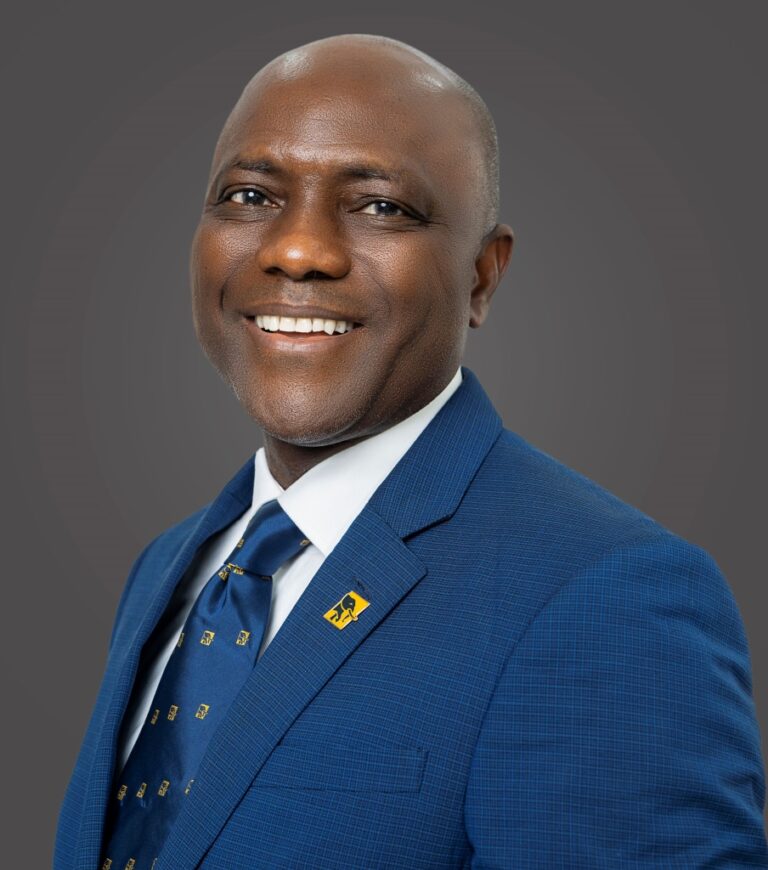
- INJUNCTION AND STAY OF EXECUTION
- CARGO REMAINS UNDER ARREST
In a surprising twist of events, its decision delivered today, the Federal High Court in a surprising shift from the true nature of FirstBank ’s claim held that the matter is not a maritime claim but rather, a simple case of debt recovery. This is quite surprising considering the fact that the order sought is to prevent further fraudulent sale of crude on the FPSO.
Shockingly, the court also held that the Arrest Order against the cargo, because it was exparte in nature, expired by effluxion of time within 14 days of its issuance.
Aggrieved by the decision, FirstBank lodged an appeal against the decision of the FHC. Also, FirstBank filed an application for an injunction of the court against GHL, pending the determination of the appeal. The Cargoes of Crude Oil on the FPSO TAMARA TOKONI remain arrested.
While FirstBank has great respect for the courts, it strongly disagrees with the ruling, which, in our view, constitutes a miscarriage of justice.
FirstBank remains committed to protecting and securing the interest of its members and will relentlessly pursue justice against mischievous debtors seeking to use the machinery of the law to perpetuate mischief and evade their responsibility to offset outstanding obligations.
About FirstBank
First Bank of Nigeria Limited “FirstBank”, established in 1894, is the premier bank in West Africa, a leading financial inclusion services provider in Africa, and a digital banking giant.
FirstBank’s international footprints cut across three continents ─ Africa, Europe and Asia, with FirstBank UK Limited in London and Paris; FirstBank in The Democratic Republic of Congo, Ghana, The Gambia, Guinea and Sierra Leone; FBNBank in Senegal; and a FirstBank Representative Office in Beijing, China. All the subsidiary banks are fully registered by their respective Central Banks to provide full banking services.
Besides providing domestic banking services, the subsidiaries also engage in international cross-border transactions with FirstBank’s non-Nigerian subsidiaries, and the representative offices in Paris and China facilitate trade flows from Asia and Europe into Nigeria and other African countries.
For 130 years, FirstBank has built an outstanding reputation for solid relationships, good corporate governance, and a strong liquidity position, and has been at the forefront of promoting digital payment in the country with over 13 million cards issued to customers (the first bank to achieve such a milestone in Nigeria). FirstBank has continued to make significant investments in technology, innovation and transformation, and its cashless transaction drive has been steadily accentuated with virtually 23 million active FirstBank customers signed up on digital channels including the USSD Quick Banking service through the nationally renowned *894# Banking code.
With over 42 million customer accounts (including digital wallets) spread across Nigeria, UK and sub-Saharan Africa, the Bank provides a comprehensive range of retail and wholesale financial services through more than 820 business offices and over 233,500 agent locations spread across 772 out of the 774 Local Government Areas in Nigeria.
In addition to banking solutions and services, FirstBank provides pension fund custody services in Nigeria through First Pension Custodian Nigeria Limited and nominee and associated services through First Nominees Nigeria Limited.
FirstBank’s commitment to Diversity is shown in its policies, partnerships and initiatives such as its employees’ ratio of female to male (about 39%:61%; and 32% women in management) as well as the FirstBank Women Network, an initiative that seeks to address the gender gap and increase the participation of women at all levels within the organisation. In addition, the Bank’s membership of the UN Women is an affirmation of a deliberate policy that is consistent with UN Women’s Women Empowerment’s Principles (WEPs) ─ Equal Opportunity, Inclusion, and Nondiscrimination.
For six consecutive years (2011 – 2016), FirstBank was named “Most Valuable Bank Brand in Nigeria” by the globally renowned The Banker Magazine of the Financial Times Group and “Best Retail Bank in Nigeria” eight times in a row, 2011 – 2018, by the Asian Banker International Excellence in Retail Financial Services Awards.
In 2022, the Top 100 African Bank rankings released by The Banker Magazine ranked FirstBank as number one in Nigeria in terms of Overall Performance, Profitability, Efficiency and Return on Risk. Also in 2022, the Bank received the “Most Innovative Retail Banking Product in Nigeria (FastTrack ATM)” and “Best Retail Bank in Nigeria” awards from International Finance Magazine. FirstBank was also awarded “Best Corporate Banking Western Africa, 2022” and “Best CSR Bank Western Africa, 2022’’ by Global Banking and Finance Magazine.
Other notable awards in FirstBank coffers include: “Best Bank in Nigeria” by Global Finance magazine – fifteen times in a row; “Best Private Bank in Nigeria-2021” awarded by Global Finance magazine; “Best Internet Banking Nigeria” and ‘’Best CSR Bank Africa’’ by International Business Magazine.
In 2023, FirstBank received notable awards including “Best Private Bank for Sustainable Investing in Africa 2023” by Global Finance Awards; “Best Sustainable Bank in Nigeria 2023” by International Investors Awards; “Best Bespoke Banking Services in Nigeria 2023” by International Investors Awards; “Best Financial Inclusion Service Provider in Nigeria 2023” by Digital Banker Africa; and “African Bank of the Year” by African Leadership Magazine; ’’Best Corporate Bank in Nigeria 2023’’ by Euromoney Awards and ‘’Most Innovative Banking Brand – Nigeria 2023’’ by Global Brands Award.
Other laudable feats in 2023 include FirstBank’s international recognitions on major indices by Euromoney Market Leaders, an independent global assessment of the leading financial service providers where FirstBank was crowned:
Market Leader: (tier-1 recognition) in Corporate Banking,
Market Leader: (tier -1 recognition) in Digital Solutions,
Highly Regarded: Corporate and Social Responsibility (CSR),
Highly Regarded: Environmental, Social and Governance (ESG), Notable: in SME Banking.
Significantly, FirstBank’s Global Credit Rating was A+ with a positive outlook while ratings by Fitch and Standard & Poor’s were A (nga) and ngBBB+ respectively both with Stable outlooks as at September 2023. FirstBank maintained the same level of international credit ratings as the sovereign; a milestone that was achieved in 2022 for the first time since 2015.
Our vision is ‘To be Africa’s Bank of first choice’ and our mission is ‘To remain true to our name by providing the best financial services possible. This commitment is anchored on our core values of EPIC – Entrepreneurship, Professionalism, Innovation and Customer-Centricity. Our strategic ambition is ‘To deliver accelerated growth in profitability through customer-led innovation and disciplined execution and our brand promise is always to deliver the ultimate “gold standard” of value and excellence to position You First in every respect.
Olayinka Ijabiyi
Ag. Group Head, Marketing & Corporate Communications
First Bank of Nigeria Limited
News
FirstBank holds groundbreaking ceremony for new 40-storey eco-friendly HQs in Lagos
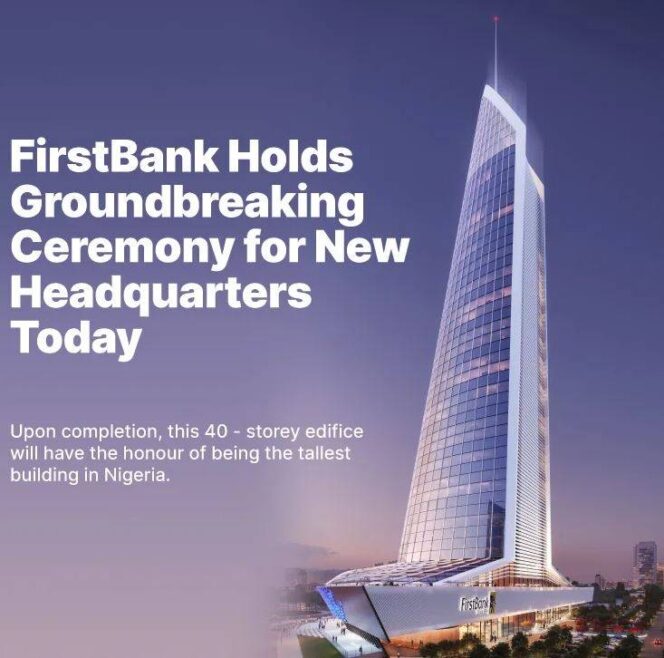
FirstBank of Nigeria Limited, West Africa’s premier bank and a key player in financial inclusion, will today (Wednesday) host the groundbreaking ceremony for its new, green-certified headquarters in Eko Atlantic City, Lagos.
The 40-storey building, set to become the tallest structure in Nigeria, promises to be a technological and environmental marvel, with advanced, eco-friendly construction designed to set new benchmarks in Africa’s financial services sector.
A statement on Wednesday signed by Olayinka Ijabiyi, Ag. Group Head, Marketing & Corporate Communications, First Bank said the ceremony marks the beginning of a transformative journey that highlights commitment to innovation, excellence, and customer satisfaction.
“The new headquarters will feature a sustainable, green-certified design aimed at reducing operational costs while positioning FirstBank as a leader in sustainable banking practices,” it said.
Olusegun Alebiosu, CEO of FirstBank Group, stated, “We are thrilled to reach this important milestone in our pursuit of excellence. Our new head office will be a world-class structure that reflects our dedication to innovation, sustainability, and customer satisfaction. We believe this development will play a key role in driving economic growth and long-term value for all our stakeholders across Africa.”
With a legacy of over 130 years, FirstBank has consistently been a trailblazer in innovation, customer service, and sustainable business practices. The bank operates across nine countries on three continents, reinforcing its international presence.
Femi Otedola, Chairman of FirstHoldCo, remarked, “Today’s ceremony underscores the importance of collaboration and the unwavering support from various sectors in realizing our vision for the new headquarters. We are deeply grateful for the continued support from our customers and stakeholders as we bring this vision to life.”
The groundbreaking event will be attended by distinguished guests, including the President of the Federal Republic of Nigeria, Senator Bola Ahmed Tinubu GCFR, as well as senators, lawmakers, state governors, federal ministers, and key figures from various industries. This event marks the beginning of an exciting new chapter in FirstBank’s rich history, cementing its position as a leader in Africa’s financial landscape.
News
‘No Disparity,’ NUPRC Confirmed 1.8m bopd NNPC Ltd Oil Production Figures At NAPE Conference’
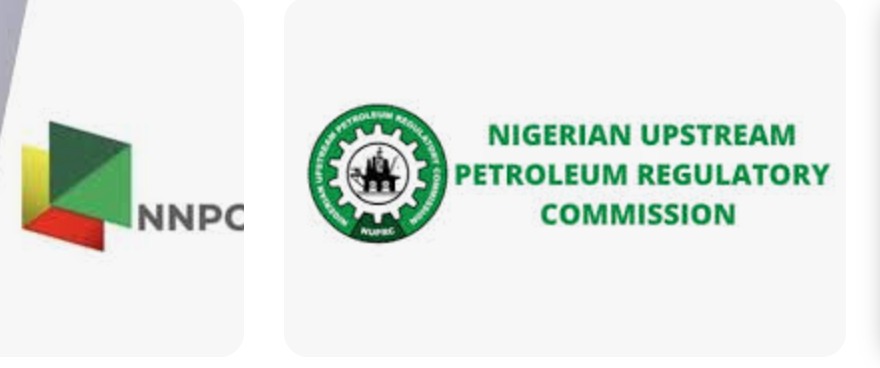
1.54m bopd production figure (quoted by THISDAY for October) is for September, not October,’ What NUPRC boss told highest body of petroleum explorationists and stakeholders in Lagos.
The Nigerian Upstream Petroleum Regulatory Commission (NUPRC) confirmed the 1.8 million barrels of per day (bopd) production figures earlier released by the Nigerian National Petroleum Company Limited (NNPC Limited) at the conference organised by the Nigerian Association of Petroleum Explorationists (NAPE) in Lagos.
This newspaper, which reported the Commission boss, Gbenga Komolafe, to have said this to stakeholders, maintained that the development is contrary to a report making the round that the NUPRC contradicted the NNPC Ltd figures.
Speaking at the 42nd Nigerian Association of Petroleum Explorationists Annual International Conference & Exhibition in Lagos, Komolafe said that Nigeria’s crude oil output, including condensate, increased by 16.56 per cent to 1.8 million barrels per day, bpd in October 2024, from 1.54 million bpd in September 2024.
He said that as a result of this feat, Nigeria has exceeded the 1.5 million bpd quota of the Organisation of Petroleum Exporting Countries, OPEC.”This represents an increase of 253,710,bpd to reach 1.8 million bpd in October, up from 1.54 million bpd in September 2024, representing 16.56 per cent month-on-month rise,” he said.
Represented by Enorense Amadasu, Executive Commissioner for Development and Production at NUPRC, the NUPRC boss declared that efforts were underway to further increase oil output to two million bpd by December 2024.
Highlighting the theme of the conference, “Resolving the Nigerian Energy Trilemma: Energy Security, Sustainable Growth and Affordability”, Komolafe, said the organization is committed to expanding Nigeria’s oil production capacity.
Checks by this newspaper showed that this is the same position of the NNPC Ltd, which said it and its partners have revved up crude oil and gas production to 1.8 million barrels per day (mbpd) and 7.4billion standard cubic feet (bscf) per day.
The company announced this at a press briefing, maintaining that the feat was achieved in compliance with the mandate of President Bola Ahmed Tinubu.This newspaper gathered that these figures are, contrary to misconstrued report, the same with the ones announced by the NUPRC.
Disparity Where There Is None A THISDAY review of the delayed October production figures by the NUPRC, which is the oil and gas sector upstream regulator, claimed that Nigeria produced 1.538 million bpd of crude oil and condensate.
The three-month low production data released by the NUPRC, the report claimed, contradicted the report announced by the national oil company and the Ministry of Petroleum Resources (Oil), which specifically put production at 1.808 million bpd.
Looking Beyond 1.8m bopd, Speaking on the development, the Group Chief Executive Officer, Mr. Mele Kyari, who reiterated that the Company revved up oroduction to 1.8 m bopd, declared the target to even increase the production to 2 million bopd.
Kyari congratulated the Production War Room Team that anchored the production recovery process.“The team has done a great job in driving this project of not just production recovery but also escalating production to expected levels that are in the short and long terms acceptable to our shareholders based on the mandates that we have from the President, the Honourable Minister, and the Board,” Kyari explained. Giving details of the efforts of the Production War Room, the Chief War Room Coordinator, and Senior Business Adviser to the Group Chief Executive Officer, Mr. Lawal Musa disclosed that the feat was achieved through the collaborative efforts of Joint Venture and Production Sharing Contract partners, the Office of the National Security Adviser, as well as government and private security agencies.
He said the interventions led to the recovery of production cut across every segment of the production chain with security agencies closely monitoring the pipelines. He stressed that when the Production War Room team was inaugurated on the 25th June 2024, production was at 1.430mbpd, but the team swung into action, culminating into it sustaining the production recovery to 1.7mbpd in August and hitting the current 1.808mbpd in November.
“We are confident that with this same momentum and with the active collaboration of all stakeholders, especially on the security front, we can see the possibility of getting to 2mbpd by the end of the year,” he stated.
Also speaking on the development, Chairman of the NNPC Ltd Board of Directors, Chief Pius Akinyelure, who also congratulated the team, said he was happy to be part of the production recovery process, adding: “today, I will leave this place with my heart full of joy”.
He charged the Company’s Management to come up with a cashflow projection based on the new production figures to facilitate planning, stressing that he was looking forward to further production increase to 3mbpd.
-
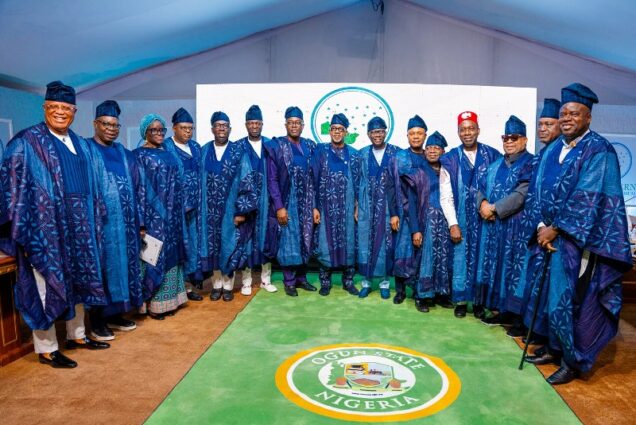
 Politics1 year ago
Politics1 year agoBREAKING: Abiodun emerges chairman of Southern Governors Forum
-

 News1 year ago
News1 year agoZenith Bank Enhances Customer Online Experience with Revamped Digital Channels
-

 News10 months ago
News10 months agoFirstBank holds groundbreaking ceremony for new 40-storey eco-friendly HQs in Lagos
-

 News1 year ago
News1 year ago‘No Disparity,’ NUPRC Confirmed 1.8m bopd NNPC Ltd Oil Production Figures At NAPE Conference’
-

 Business8 months ago
Business8 months agoZENITH BANK ASSURES SHAREHOLDERS OF QUANTUM LEAP IN FUTURE DIVIDENDS AT 34TH AGM, PAYS N195.67 BILLION FOR 2024 FINANCIAL YEAR
-

 News9 months ago
News9 months agoFIRSTBANK FILES APPEAL
-

 News1 year ago
News1 year agoUS indicts Air Peace CEO, Onyema, in fresh charges
-

 Business9 months ago
Business9 months agoZENITH BANK ACHIEVES DOUBLE-DIGIT GROWTH IN GROSS EARNINGS, PROPOSES N4.00 FINAL DIVIDEND IN FULL YEAR 2024
